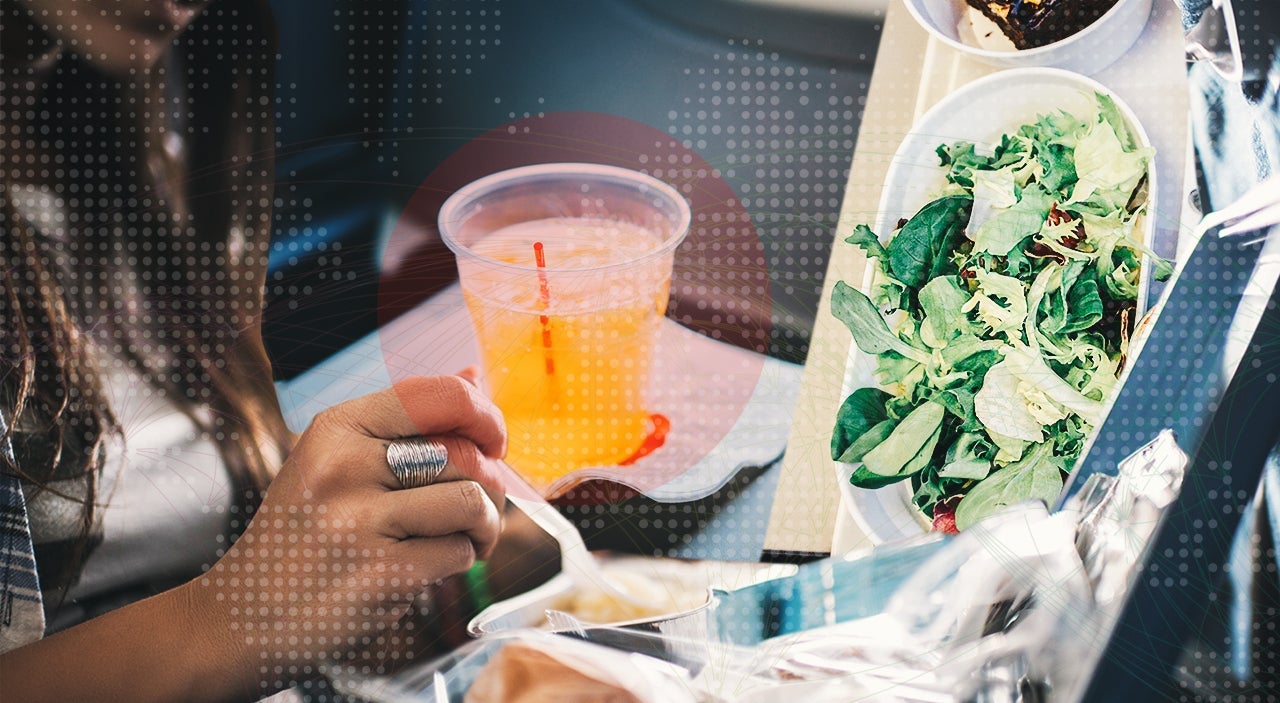Should I take supplements during air travel — if so, which ones?
The word supplement means exactly what it says on the packet ... an add-on that supplements something. Dietary supplements are not designed to replace a healthy eating plan. However, we are in a fast-paced society where there are a lot of toxins, poor food choices and nutrient-depleted soil, so now it is more important than ever to consider a supplement in your daily routine.
Are supplements expensive?
Supplement quality varies just the same as food quality does. For instance, you can choose to buy basic "economy" meat or organic free-range meat. This applies to supplements, and most mass market-produced supplements are low quality and have little effect on the body. There are, however, some supplements that have shown efficacy in clinical trials and support the body the way they are intended to.

How to choose a good supplement
The first thing is to look at what fillers and binders are in the supplement. These can be ingredients such as magnesium stearate, sucrose (sugar), silca and calcium carbonate. Ideally you should avoid these entirely — so look for a company that does not use any fillers or binders. Next, the vitamins should be in their "active" form. Look for L-Methyl Folate over Folic Acid, Magnesium Glycinate over Magnesium Oxide and Methyl-B12 over Cyno-B12. Finally you should consider the amounts you are getting in the supplements. A good quality supplement brand can offer 25-50mg of B2 where an inferior brand may only offer 1mg, for example.
Whilst supplements can be very effective, you should be careful that they don't interfere with medication that you are already taking. Speak to a health professional before taking any.
Further reading: How to stick to your diet if you're a frequent flyer
Supplements do different things, so there isn't a single multi-tablet you can take that will cover everything you need. Obviously, there are some side effects that can occur as a result from flying long hours, and in this case, taking a supplement can prevent unwanted symptoms or help speed up recovery at your destination.

Probiotics
With the low cabin pressure, some passengers can get off a long-haul flight feeling bloated and even constipated for a few days. Coupled with a new environment and cuisine, it may give some digestion issues, so it's good to support digestion with a probiotic when traveling.
It can be particularly useful to supplement this with Sacromyces Boulardii, which will further support the immune system of the gut and ward off the unwanted "Delhi Belly." Saccharomyces boulardii helps to fight off disease-causing organisms in the gut and you can buy it in health shops. It's often labeled as a "bowel calm" on the packet. It's best to take both for a few days before traveling, during your trip, and a few days after.
Make sure you get a shelf-stable probiotic so you don't have to refrigerate it at your destination.
Digestive Enzymes
To further support digestion, you could consider taking a digestive enzyme on the plane when eating. This can support your body in breaking down food.
There are three main types of digestive enzymes:
- Proteases: These break down protein into small peptides and amino acids.
- Lipases: These break down fat into three fatty acids plus a glycerol molecule.
- Amylases: These break down carbs like starch into simple sugars.
Some people may not be able to naturally make enough digestive enzymes, which can slow the digestion process and therefore lead to uncomfortable symptoms such as bloating and flatulence. You can buy a digestive enzyme complex, which should have all of the enzymes listed above. Enzymes should ideally be taken 20 minutes before eating.
Magnesium
If you just want to take one supplement while traveling, then magnesium is the one. It's the one supplement that can act as an all-rounder and in terms of flying, yields benefits for jet lag, rehydrates by supplying electrolytes, relaxes muscles, helps promote calm in the body and also supports the nervous system for panicky flyers.
Magnesium comes in many forms — the most preferred is Magnesium Glycinate, which has the best bioavailability and is easy on the bowels.
Further reading: Things you should do before, during and after flying to stay healthy
Supplements for preventing leg clots
Nattokinase and Pine Bark extract are researched to help protect against Deep Vein Thrombosis (DVT), which can occur when traveling long distances without much movement. These supplements can prevent leg swelling and leg clots and thrombotic risks in travelers.
Supplements for the immune system
Traveling can put a stress on the immune system so it's important that it is functioning well. Key nutrients for the immune system include vitamin A, C, D, Zinc, Elderberry and Beta Glucans. Don't fret over taking all of these individually, as many supplement companies offer immune complexes which have most, if not all of the above in their ingredients.
Even if you're not a fan of supplements then it's wise to make sure your vitamin D is sufficient. You can request a test from your GP or online and it's advised to supplement with D3 if deficient.

Antioxidants
These supplements can play a role in fighting free radicals in the body and also protect the skin against sun damage when traveling. If you're a frequent flyer or cabin crew, then it may support the radiation impact from flying. Supplements to include are vitamin C, E, Selenium and also Glutathione — a master antioxidant in the body.
Supplements for jet lag
Melatonin (the sleep hormone) is an over-the-counter supplement and widely used among frequent flyers. There can be other ways to support recovery from jet lag. You can use valerian drops or even use 5-HTP, a supplement, which comes from the seeds of an African shrub known as "Griffonia simplicifolia." 5-HTP helps produce serotonin and then converts it to the hormone melatonin and therefore promotes sleep.
TPG featured card
at Capital One's secure site
Terms & restrictions apply. See rates & fees.
| 5X miles | Earn 5X miles on hotels, vacation rentals and rental cars booked through Capital One Travel |
| 2X miles | Earn unlimited 2X miles on every purchase, every day |
Pros
- Stellar welcome offer of 75,000 miles after spending $4,000 on purchases in the first three months from account opening. Plus, a $250 Capital One Travel credit to use in your first cardholder year upon account opening.
- You'll earn 2 miles per dollar on every purchase, which means you won't have to worry about memorizing bonus categories
- Rewards are versatile and can be redeemed for a statement credit or transferred to Capital One’s transfer partners
Cons
- Highest bonus-earning categories only on travel booked via Capital One Travel
- LIMITED-TIME OFFER: Enjoy $250 to use on Capital One Travel in your first cardholder year, plus earn 75,000 bonus miles once you spend $4,000 on purchases within the first 3 months from account opening - that’s equal to $1,000 in travel
- Earn unlimited 2X miles on every purchase, every day
- Earn 5X miles on hotels, vacation rentals and rental cars booked through Capital One Travel
- Miles won't expire for the life of the account and there's no limit to how many you can earn
- Receive up to a $120 credit for Global Entry or TSA PreCheck®
- Use your miles to get reimbursed for any travel purchase—or redeem by booking a trip through Capital One Travel
- Enjoy a $50 experience credit and other premium benefits with every hotel and vacation rental booked from the Lifestyle Collection
- Transfer your miles to your choice of 15+ travel loyalty programs
- Top rated mobile app

